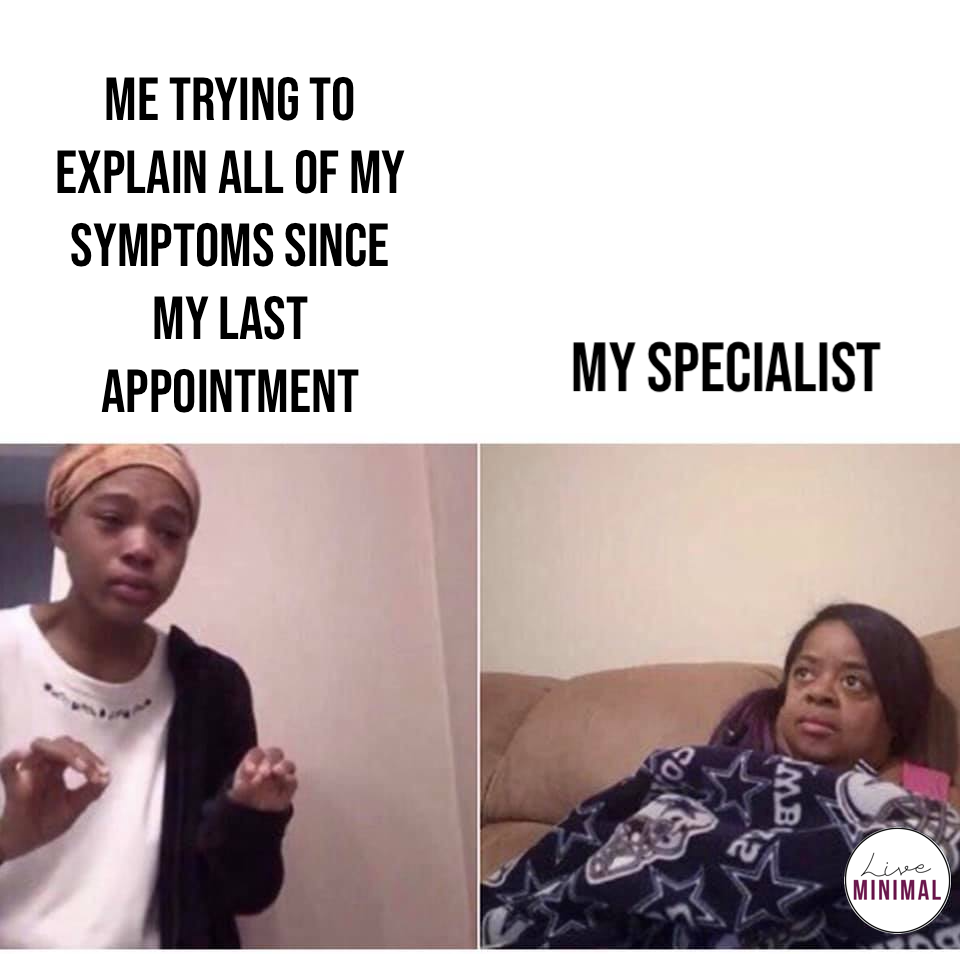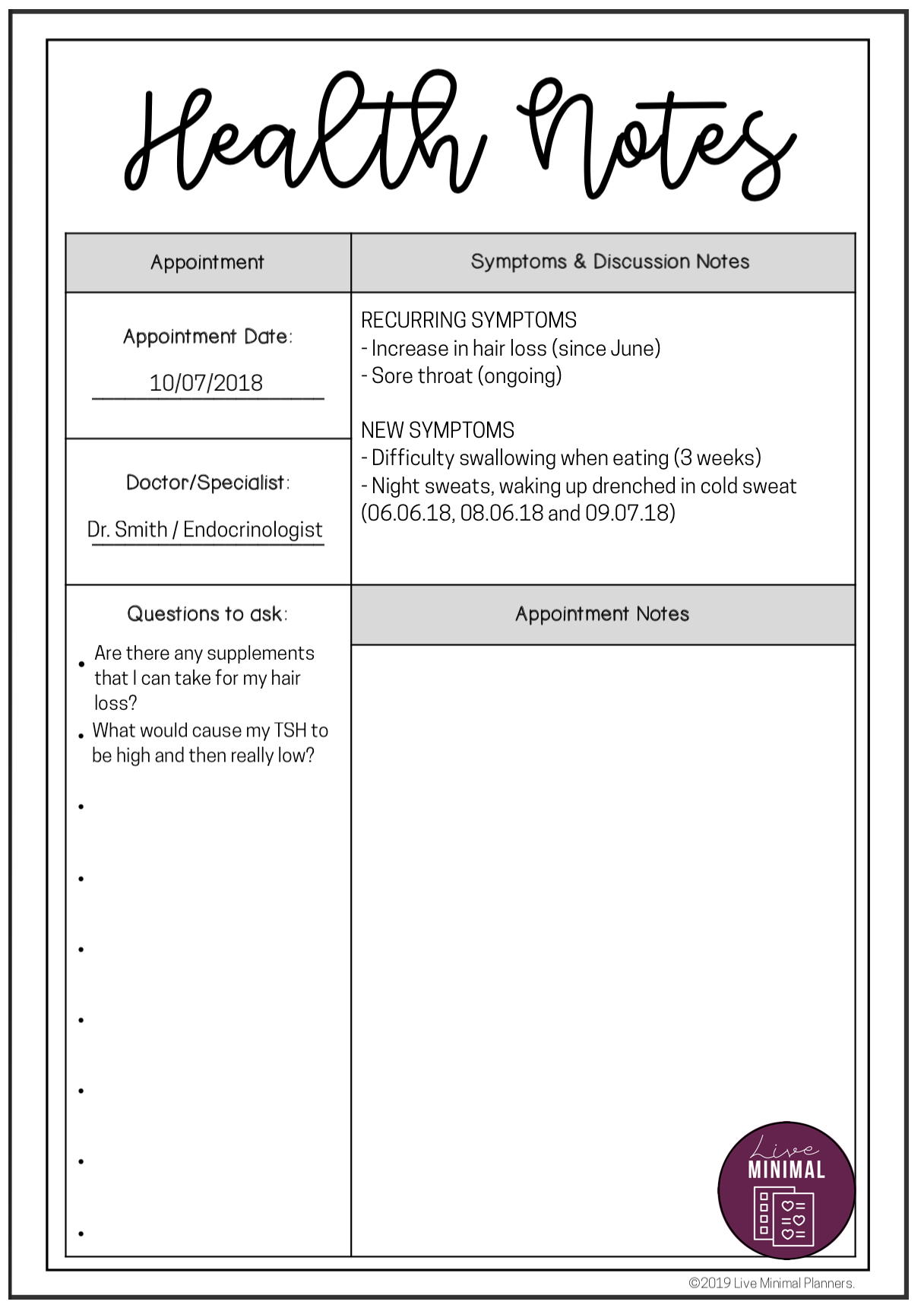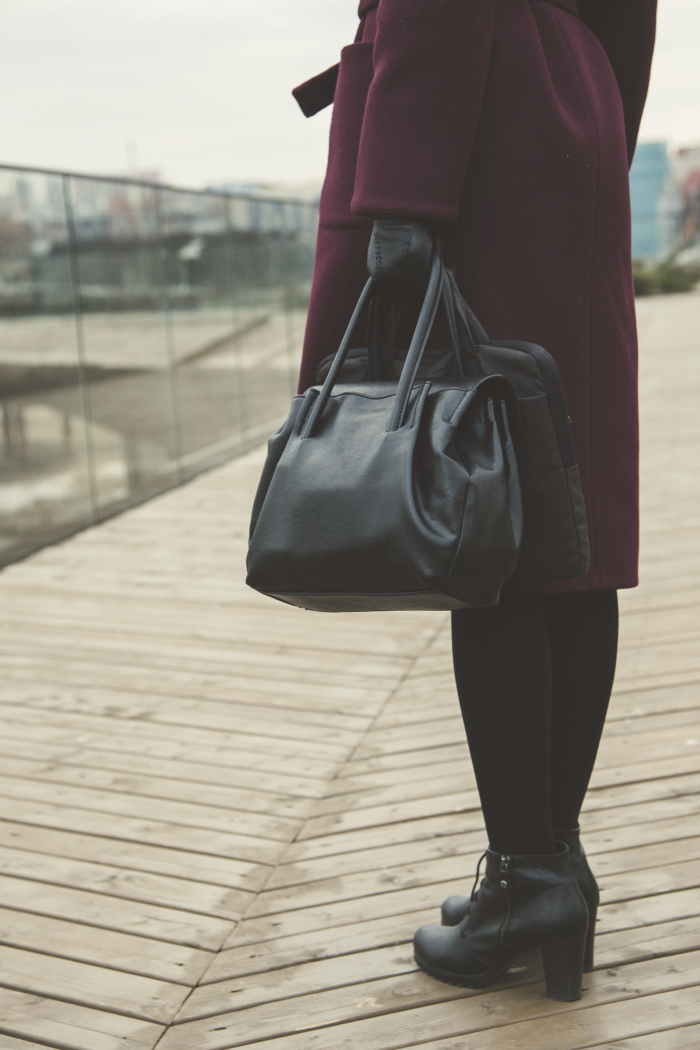Having a chronic illness means frequent attendance at doctor and specialist appointments. Often you feel like most of your days are spent meeting with them while trying to keep on top of all of your other commitments. Specialist appointments can be stressful. However, I’ve found that by preparing beforehand and bringing along certain information/items, the process can be made easier.
Here are seven things you should consider bringing to your specialist appointments:
1. Referral letter.
If this is your very first appointment with a new specialist, make sure to bring a copy of your practitioner’s referral letter. Even if you’re sure they received a copy before the appointment, there are no guarantees that it will be in their records when you turn up. If this is your long-term specialist, be sure to check if your referral letter is up to date. My referrals only last one year and then I need to bring in a new one.
2. Notes on recurring and new symptoms.
Since my diagnosis, I’ve realised my memory is not the best due to brain fog. It’s even worse if I’m answering questions on the spot. When I’m asked to explain any updates since the last appointment, I tend to forget important information or my explanations are not thorough enough.
Specialist appointments are often secured several months in advance because they are booked out. During this waiting period, recurring symptoms persist, and new ones pop up, that need discussing. I try to jot these down as they occur, well in advance of my appointments. Something that might seem small to me may need further investigation from the specialist. Recurring symptoms are just as important as new and unusual ones. When I attend my appointments, I’m not worried about pulling out my list of symptoms and reading from it. Visits can be expensive, and it may be several months until the next appointment, so it’s best to give all of the information to them so they can make an appropriate assessment of how you’re going.

3. Recent test results.
If your GP conducts blood work or scans in the lead up to the appointment, bring these results along. Your specialist may ask for new tests, but at least they have something to look at on the day. I often bring any recent thyroid blood results to my endocrinologist appointments, any ECG scans to my cardiologist appointments and any new ANA/CRP results to my immunologist appointments.
4. Bring extra clothing.
**Trigger warning, please skip to number 5 if you struggle with an eating disorder**
Depending on the specialist, you may need to remove clothing so that they can conduct their examinations. Having dealt with an eating disorder for nearly a decade, I’m not very comfortable with specialists seeing my entire body without clothes. However, after years of being in and out of hospitals, I’ve become accustomed to removing upper body clothing for heart examinations.
I have been caught off guard by being asked to remove my lower garments. My new cardiologist decided to test for EDS during our first appointment. Earlier that morning, he had made several comments that made me feel uneasy. As a result, I wasn’t comfortable wearing only lower underwear with my gown wide open in the front (I had just had an ECG, so I had nothing on above). I mentioned that I would feel more comfortable just pulling up my leggings so that he could see my legs, without having to remove my pants. He responded by telling my husband; he didn’t know how I expected to have a family with him if I couldn’t even take my clothes off.
Cue the most intensely awkward moment of my life. I wanted to burst into tears. I’m not sure if I was upset by what he said or that I couldn’t convince myself to do what was asked. I ended up hiking up my leggings so that he could examine my legs – and he was still able to conduct the test.
The moral of this story is to prepare for unexpected tests – pack shorts/shorter clothing/loose clothing if you’re not comfortable removing garments.
5. List of questions.
Just like your list of symptoms, you may have a large number of questions you would like to ask your doctor. Don’t rely on memory to remember during the appointment. My husband is always reminding me to write things down, so I don’t forget. Most times I laugh it off and think, I’ll be okay – I deal with this every day, surely I can remember my symptoms and questions. But sure enough when I’m with my specialist, my mind goes blank. Or the opposite occurs and I flood them with a list of enquiries all at once and confuse myself!
Here is one example of how I prepare for an appointment. The health notes below are part of the Live Minimal medical planner and are available on the website as an instant download here or here. I print out the medical planner and bind the documents to make a booklet. Then I fill out the appointment, questions and symptoms sections before meeting with my doctor. During the visit, I make notes. They’re easy to use as a reference, and all of my records are together. This planner is handy when my cardiologist asks what my endocrinologist advised me to do during my last appointment. I can flick through and find all of my notes.

Alternatively, you can prepare a word document or piece of paper with all of your notes before your appointment.
6. List of medications.
Not all of your specialists will liaise with one another. When I choose doctors, I select ones that know of each other so that information can be shared efficiently. My cardiologist knows my endocrinologist, who also knows my immunologist because they often work in the same hospitals. Even then, it’s essential to bring a list of your current medications. If a specialist prescribes you a new medication, they can then check if it counteracts with another one you are currently taking.
7. Snacks & activities.
A scheduled appointment doesn’t necessarily mean that it will take place at that time. Earlier meetings can go over time, and you may be left to wait until your specialist has caught up before being seen. To keep occupied, I bring along a book to read, some word search puzzles and snacks. Try to bring a device that doesn’t require Wifi in case there is bad reception. If you have dysautonomia, pack salty snacks, electrolyte drinks and extra water to keep you hydrated.
Preparing beforehand can make a big difference when you’re meeting up with your specialist. Concerns and questions can be addressed, and there are no regrets about forgetting something important. Perhaps you also bring along the same items I listed above, or maybe you have a few different ones. If so, I’d love to hear what you bring with you to your appointments in the comments below.






